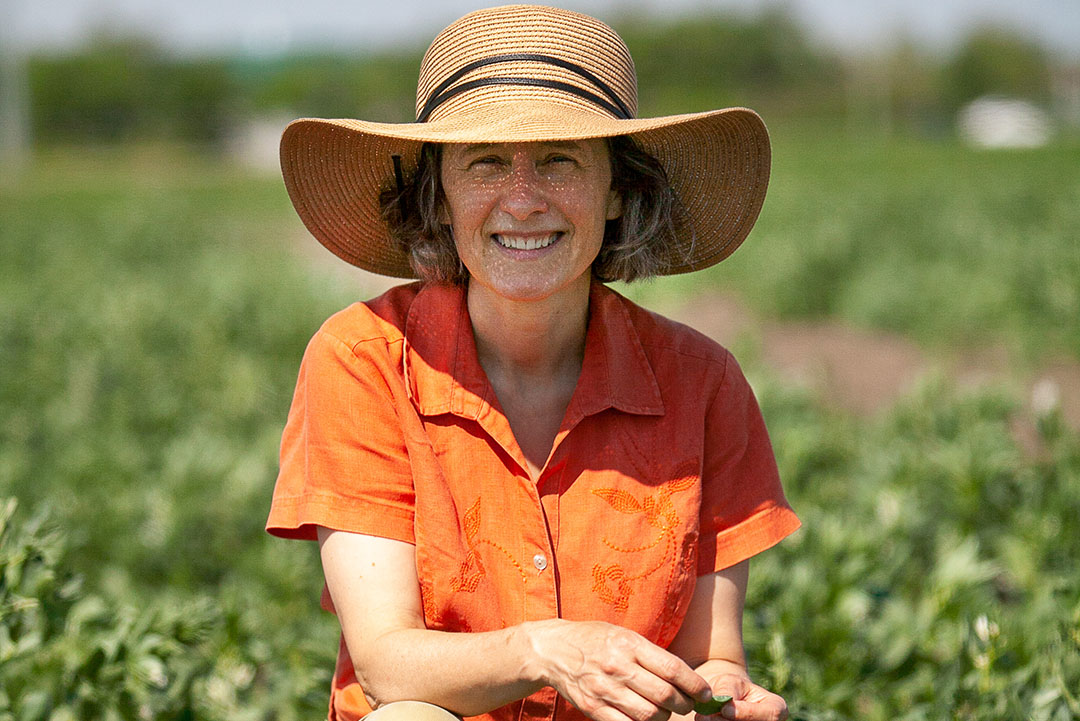Canada’s Minister of Agriculture and Agri-Food Lawrence MacAulay and Saskatchewan Agriculture Minister David Marit announced a total of $14.7 million to support crop-related research in 2024.
Invested through Saskatchewan’s Agriculture Development Fund (ADF) and the Strategic Research Initiative (SRI) under the Sustainable Canadian Agricultural Partnership (Sustainable CAP), the commitment includes $12.2 million for 56 ADF research projects and $2.5 million to support an SRI project identifying solutions to manage root rot in pea and lentils.
“Investments like these are vitally important to the future of our agriculture sector,” MacAulay said. “These research projects will help our farmers adopt more sustainable practices and new methods to counter the effects of drought, diseases and other environmental challenges they face.”
“Funding agriculture research is the first step to helping our producers stay competitive and profitable,” Marit said. “Our growth targets for the end of this decade rely heavily on agriculture and agri-food products. Our commitment to projects like those being funded today, with strong support again this year from our industry partners, is an investment in Saskatchewan’s innovative, export-based economy.”
The ADF provides support annually and on a competitive basis to research projects with the potential to create growth opportunities and enhance the agriculture industry’s sustainability and competitiveness. This year’s successful ADF projects cover a range of research topics, including enhancing flax abiotic stress tolerance; determining the impact of agronomic products containing calcium on soil conditions, plant growth and greenhouse gas emissions; understanding, mitigating and managing Group 14 resistant kochia; and, developing a wet fractionation process for novel oat protein ingredients.
The Governments of Canada and Saskatchewan work closely with industry partners to leverage funding to support research that aligns with industry priorities. An additional $4.2 million was contributed by the following industry partners to support this year’s ADF research projects:
- Alberta Grains
- Manitoba Canola Growers
- Manitoba Crop Alliance
- Prairie Oat Growers Association
- Results Driven Agriculture Research
- Saskatchewan Barley Development Commission
- Saskatchewan Canola Development Commission
- Saskatchewan Flax Development Commission
- Saskatchewan Forage Seed Development Commission
- Saskatchewan Pulse Growers
- Saskatchewan Wheat Development Commission
- Western Grains Research Foundation
The SRI provides targeting funding to address complex challenges facing the agriculture sector. Through the SRI, Dr. Sabine Banniza at the University of Saskatchewan will accelerate the discovery of root rot solutions for pea and lentil crops in Saskatchewan. This project will develop new options to manage root rot and will contribute to preserving and expanding the pea and lentil acres in our province. It represents a $4.2 million research investment, with $2.5 million in government funding through Sustainable CAP and $1.7 million coming from Saskatchewan Pulse Growers (SPG), Western Grains Research Foundation, Alberta Pulse Growers Commission, Results Driven Agriculture Research and Manitoba Pulse and Soybean Growers.
“The continued support from federal and provincial governments of the ADF is greatly appreciated,” SPG Board Chair Winston van Staveren said. “The funding supports SPG’s highest priorities in research like root disease, weed management and more. These investments will work to address growers’ top concerns and work to improve profitability and competitiveness.”
The ADF and SRI are supported through Sustainable CAP, a five-year, $3.5-billion investment by Canada’s federal, provincial and territorial governments that supports Canada’s agri-food and agri-product sectors. This includes $1 billion in federal programs and activities and a $2.5 billion commitment that is cost-shared 60 per cent federally and 40 per cent provincially/territorially for programs that are designed and delivered by provinces and territories.











